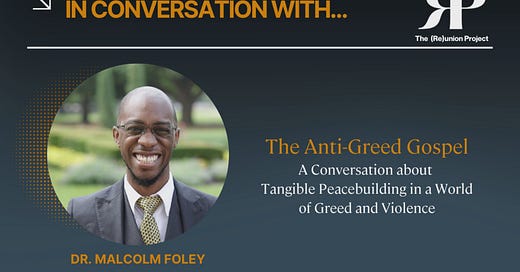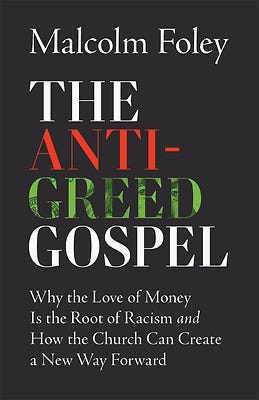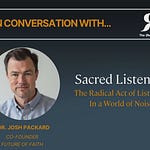(If you want to listen to conversations outside of Substack, you can subscribe to Spotify, YouTube, or Apple Podcasts. Help us connect with more listeners by subscribing and leaving a review!)
“Money. Mammon. Riches. All names for the same rival god, the service of whom the Scriptures call greed. Mammon lies at the root of lynching, of racial violence, of racial capitalism, and ultimately of the very concept of race itself. The demonic cycle of self-interest cannot be broken personally, communally, or cosmically without reckoning with greed. Those who are best positioned to spearhead this reckoning are those who serve the God of the Scriptures.”
In this conversation, Ideos VP Greg Arthur and Dr. Malcolm Foley discuss his book, The Anti-Greed Gospel, and explore themes of peacemaking, unity, and the divisions within the American church. Malcolm reflects on the historical context of racial justice, greed, and the church's role in addressing economic exploitation. The conversation emphasizes the importance of love as a material commitment to one another and the need for the church to build multi-ethnic congregations that reflect the kingdom of God.
(This conversation is a helpful follow-up to an earlier conversation with Matt Tebbe about Mammon and its role in creating divisions within the church)
Episode Takeaways
Dr. Foley emphasizes the importance of understanding historical realities that impact current church conflicts.
He shares personal experiences as the only black teaching elder in a predominantly white church.
Cultural conflicts require discernment between adaptation and assimilation.
Greed is identified as a primal sin that leads to societal divisions.
The church must prioritize material love and community support for the needy.
Historical movements for racial justice often overlooked economic justice.
The church is called to be an invitation to the world, not a judgment on it.
Building multi-ethnic congregations is a challenging but necessary task.
The path of the Christian is inherently linked to the path of the cross.
The pursuit of money and political power dilutes the church's witness.













Share this post